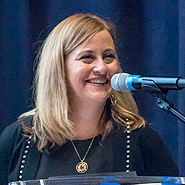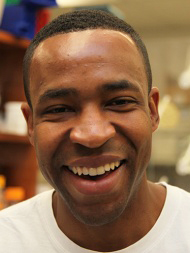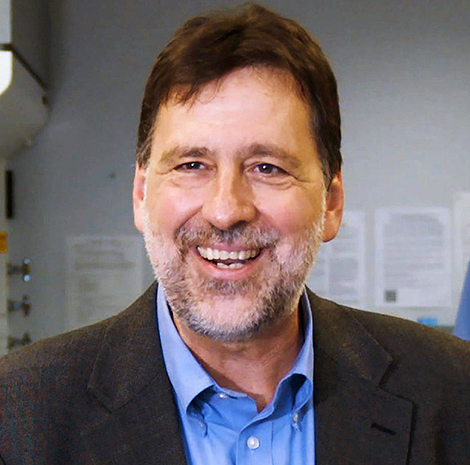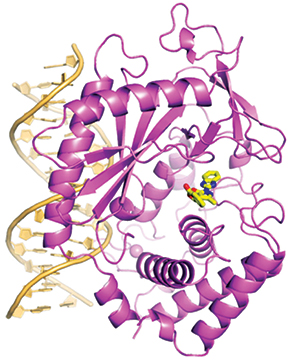Uncategorized
-

Herculano-Houzel featured speaker Nov. 1
A noted neuroscientist who studies the number of neurons present in the brains of different species, including humans, will discuss her groundbreaking work during a lunchtime talk Wednesday, Nov. 1. After developing the first method for accurately counting the number of neurons in the brain, Suzana Herculano-Houzel set out to answer the question… Read MoreOct. 31, 2017
-

Gut response to fluid flow
Flow of fluids through the gut, such as milk from an infant’s diet, generates a shear stress on cells lining the intestine. Ken Lau, Ph.D., and colleagues have demonstrated that microvilli – finger-like membrane protrusions – are capable of sensing shear forces and subsequently drive an intracellular response called autophagy. Read MoreOct. 26, 2017
-

VCAR science day shines light on addiction’s power
VCAR, which opened earlier this year, coordinates the research activities of faculty members from Vanderbilt University’s School of Medicine and College of Arts and Science who are working to better understand and ultimately improve addiction treatment. The center’s first annual science day featured presentations of current research, a poster session and… Read MoreOct. 19, 2017
-

Symposium honors Moses’ storied cancer research career
Members of the Vanderbilt University Medical Center (VUMC) community and others whose lives and careers have been influenced by legendary cancer investigator, educator and administrator Harold (Hal) Moses, M.D., have endowed the Linda and Harold L. Moses, M.D., Career Development Fund. The initiation of the fund, which will support the next… Read MoreOct. 19, 2017
-

A switch for autoimmunity
When a virus or bacteria comes calling, protein “sensors” in your cells can detect the invader’s DNA and activate inflammatory responses to prevent infection. One such sensor is cGAS (cyclic GMP-AMP synthase). Normally, cGAS is an asset – something you definitely want to be working for you. However, abnormal responses to… Read MoreOct. 12, 2017
-

Romell Gletten Receives Watkins Student Award
Romell Gletten Receives Watkins Student Award Romell Gletten (Schey Lab, Department of Biochemistry) is the recipient of the 2017 Levi Watkins Jr. Student Award, given annually to a student who has made outstanding contributions to the institution by fostering a more diverse environment that is enriching, encouraging and embracing of all students, faculty and administration. Read MoreOct. 11, 2017
-

Jeff Conn Earns 2017 Excellence in Academic Research Award
Jeff Conn Earns 2017 Excellence in Academic Research Award Jeff Conn, Lee E. Limbird Professor of Pharmacology, Director of Vanderbilt Center for Neuroscience Drug Discovery, is a recent Excellence in Academic Research Award winner. PhRMA honor Dr. Conn during the 2017 Research & Hope Awards, which took place on October 10… Read MoreOct. 11, 2017
-

A TALK About ER Ca2+ Homeostasis
A TALK About ER Ca2+ Homeostasis Insulin secretion by pancreatic β-cells occurs in response to glucose-induced increases in intracellular calcium (Ca2+c). Past research has shown that fluxes in Ca2+ from the endoplasmic reticulum (ER) play a role in this process, and that these fluxes can be disturbed in diabetes. Read MoreOct. 10, 2017
-

Blocking cGAS in Autoimmunity
Blocking cGAS in Autoimmunity Cells of the innate immune system have developed multiple sensors to detect the presence of infectious agents and certain forms of cellular damage. One such sensor is the enzyme cyclic GMP-AMP synthase (cGAS), which responds to the presence of cytosolic double-stranded DNA (dsDNA) by catalyzing… Read MoreOct. 10, 2017
-

Cellular calcium handling in diabetes
Tight regulation of calcium levels in the endoplasmic reticulum (ER) – a cellular organelle with multiple functions – contributes to insulin secretion by pancreatic beta cells. Although ER calcium handling is perturbed in diabetes, the molecular determinants of ER calcium balance are not clear. David Jacobson, Ph.D., and colleagues have now… Read MoreOct. 4, 2017